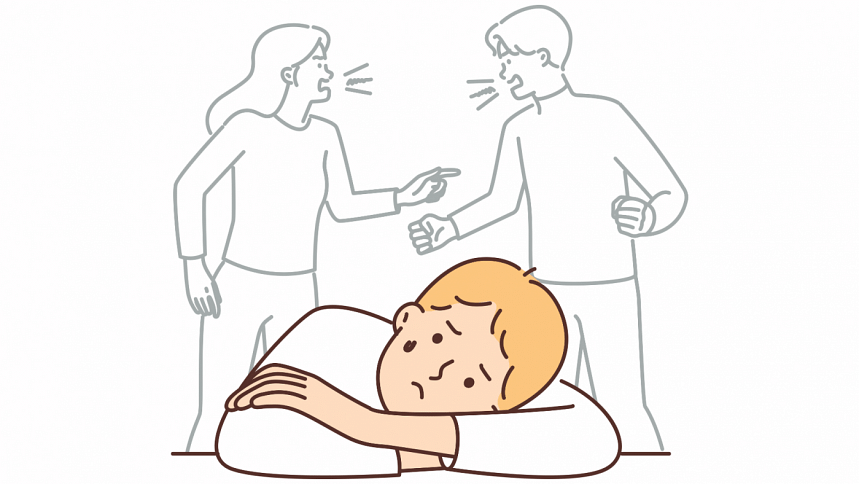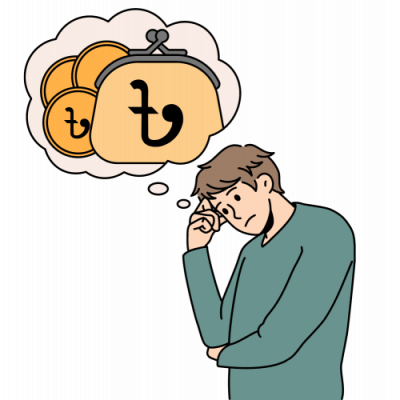The lingering effects of familial unemployment on young people

From a relatively early age, we were taught in school that our working parents should always be our greatest role models. The discipline that they display on a daily basis — from their neatly maintained uniforms to their tenacity as a whole — was always highlighted in an exemplary light for us to emulate when we grew older.
However, something that was almost never talked about, at least not in a positive connotation, was the aftermath of our parents going into unemployment. As young people who don't know any better, how are we even supposed to react to the news of our parents leaving their jobs?
For most young people, this is a question that remains unanswered to this day. As a result, they are inclined to hide the topic altogether or approach it in an uncomfortable manner that ends up exacerbating the situation. But even though it isn't nearly as talked about as it should be, the gravity and pitfalls associated with familial unemployment are ever-present and affect young people in more ways than one might think.
Shanzida Musharrat Lamia*, a second-year undergraduate student, recalls her eighth-grade days when her father was fired from his job and struggled to find employment for more than half a year. While there were many severe drawbacks throughout that period of time, the impacts it had on her education still haunt her to this day.
"The financial restraints that were born out of my dad's unemployment forced us to cut down on our expenses drastically, and my education wasn't an exception," she laments. "Despite having a board exam later that year, my family couldn't afford any sort of coaching, private tuition, or supplemental books for me, and even struggled to pay my school fees on time."
She adds, "Dealing with the mental stress and constant insecurity of studying on my family's already-depleting savings was a tremendous burden throughout the year. Coupled with the lack of academic support, the outcomes reflected on my poor final grades."

Unfortunately, that is only the tip of an iceberg that runs far deeper into young people's lives. In most cases, the effects trickle down into the core foundations of a family and eat away at everything that keeps them together.
Nineteen-year-old Arunav Talukder*, a first-year student at Notre Dame College, had just stepped into his teenage years when his mother left her job due to various circumstances. While his father still had a stable income during that period of time, he witnessed firsthand how badly her mother's unemployment shook up the entire family's dynamics.
"Right after my mom left her job, she was stricken with frustration which was exacerbated by people's snide remarks about her apparent lack of commitment. She regularly took out her anger on my dad and us, and you could tell that everyone was at their wits' end. This back-and-forth routine ultimately led to my parents' separation after two years," he elaborates.

His experiences were mirrored by Abdullah Noman, an eighteen-year-old studying at St. Gregory's High School & College. He recollects the earlier days of the pandemic when his father, the sole bread earner in the family, lost his job, leading to a constant sense of unease throughout the household.
"I could always feel a sense of insecurity in the air during that time," he shares. "Previously, my dad travelled a lot for work purposes, which is why he found it even more difficult to fit into the practice of staying home all the time without having anything to do. He slowly stopped talking to us, and a lack of healthy communication turned into regular temper tantrums and blown-out arguments that kept disorienting everyone."
No matter how many young respondents I talked to, everyone seemed to share experiences where they were always at the receiving end of their parents' negative emotions. While some numbers of emotional outbursts are inevitable, the outcome is never healthy when children are constantly pushed to shelter themselves from familial burdens.
"As a result of our crippling financial status, I developed a tendency to shut myself off from my friends and social interactions as a whole. Uncomfortable discussions and questions pertaining to our family's conditions, coupled with our lack of financial security, created this irrational fear of being outgoing that I still have to this day," said Shanzida.

Meanwhile, Arunav became hyperaware of his personal finances from a relatively early age. While that in itself isn't necessarily a bad thing, his woes weren't limited to just that. Instead, being unable to regulate his emotions properly, he felt guilty about spending any money for himself and subconsciously grew out of any materialistic desires.
"Throughout my teenage years, birthdays and special occasions passed by without me ever wanting any gifts. That inability and internalised fear to ask for anything has spilt over into the other spheres of my life now," he says.
Unbeknownst to most who did not have to face similar predicaments growing up, the psychological costs of one's parents going into unemployment are extremely nuanced, both for the parents and their children. For young people, especially, negative and stressful experiences tend to accumulate over the years and spiral into something much more unpleasant when they grow up.
*Names have been changed upon request.
Ayaan immerses himself in dinosaur comics and poorly-written manga. Recommend your least favourite reads at [email protected]

 For all latest news, follow The Daily Star's Google News channel.
For all latest news, follow The Daily Star's Google News channel. 











Comments